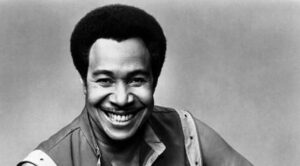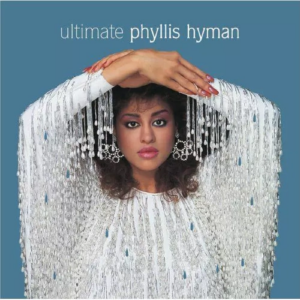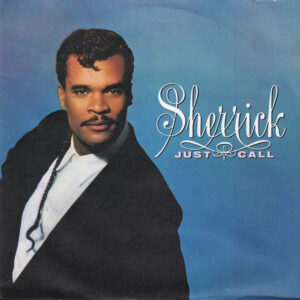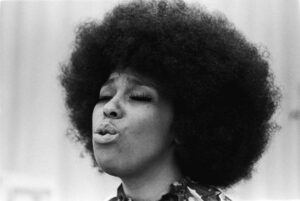In "Why," a song about the ways in which the record industry exploits and objectifies its female chanteuses and video vixens, Tomeka Williams declares "I sing these songs at the risk of a fall." With that line, Williams shows that she understands the fate that often awaits women artists who refuse to work in the record industry’s red light district. There will likely be no record deals, appearances on VH1 or big paydays for female artists like Tomeka Williams. She might have had a chance in the 1990s, when singers like Alanis Morrisette made it safe to be a female artist…. Hold up. Morrisette sings rock! Williams will be classified as an R&B singer. And as we know, the industry, radio stations, and video shows that play black artists flee from the strong, assertive conscious types as if they’re infected with H1N1.
In The Black Hood, Williams, a Seattle based artist produced by rap legend Sir Mix-a-Lot, has created a record that serves as her declaration of independence. Williams will make her music the way that she wants to make it, she will address the topics that she believes need to be addressed and she will slay some sacred cows. Williams gives the industry the middle finger on The Black Hood. This is a 10 track album, and the first 7 tunes on The Black Hood will likely have the corporate suits, station managers, record execs and video directors squirming in their seats.
And look, it’s not like Williams can’t create music for those who prefer their women – to borrow a line from H. Rap Brown – "prone." The Black Hood includes a cover of Vanity 6’s "Nasty Girl" – that’s track eight, by the way. And I can’t help but conclude that more than a little bit of thought went into the way Williams and Sir Mix-a-Lot set up the song order. Both understand that they run the risk of a backlash because listeners don’t like being preached to. Many will skip to the more radio friendly tunes. I listened to The Black Hood in its entirety and in order, and I’m glad that I did.
Admittedly, the decision to front-load The Black Hood with songs that are overtly conscious risks overkill. However, the songs don’t really come off as being preachy. That’s because the decision not to be limited topically frees Williams musically. "What She Gave" is a pop/rock anthem about the pressures teenaged girls face to become sexually active, and the consequences that result from that decision. The aforementioned "Why" is a searing funk/rock indictment of the record industry’s treatment of women, while "Girlfriend" is a soulful exploration of the way women exploit themselves. The title track is a full throttled rock anthem that pulls away the covers on the dysfunction that takes place behind the doors and stained glass windows of many homes and churches. "Ho" is another funk/rock fusion piece in which Williams informs listeners that for many men, a "ho" is any woman who has the nerve to assert her independence. In the song, Williams confronts an unfaithful lover, and tells him she no longer plans to put up his philandering. His response is to call her a "stank a## ho." "Heroes (Letter to Obama)," which is a musical request to the president to end the wars in Iraq and Afghanistan , is a lyrically visual plea for peace.
"Way Back Home," is the first of two remakes on The Black Hood (the other being "Nasty Girl"). The latter is about as close as Williams comes to being predictable and boring. The song is a by the numbers interpretation of a tune that was risqué and risky when it was released a generation ago, but is tame by today’s standards.
"Way Back Home," is a sweet piece of musical nostalgia in which Williams puts words to the song that Wilton Felder wrote for the Jazz Crusaders. The lyrics recall Williams’ youth growing up in Mississippi .
The record executive who listens to The Black Hood’s final two songs, "Me Like" and "Think About Me," will be pleased. Williams gleefully basks in the love she receives from her roughneck lover even as she mocks the judgments of middle class women with the line "and them Oprah ho’s… they don’t know."
"Think About Me" is a funky/bluesy conversation that Williams has with an unfaithful lover in which she queries him for details about his dalliances. That song’s hook: "does she look like me/does she dress like me/do you think about me/when the other girl’s in your arms" kind of sounds like something Elin might say to Tiger (yes, I went there), since they all DO kind of look like his wife.
The Black Hood is an interesting, intelligent and entertaining album. There ought to be a place on radio for everything Tomeka Williams has say. However, I won’t be holding my breath. Recommended.
By Howard Dukes










